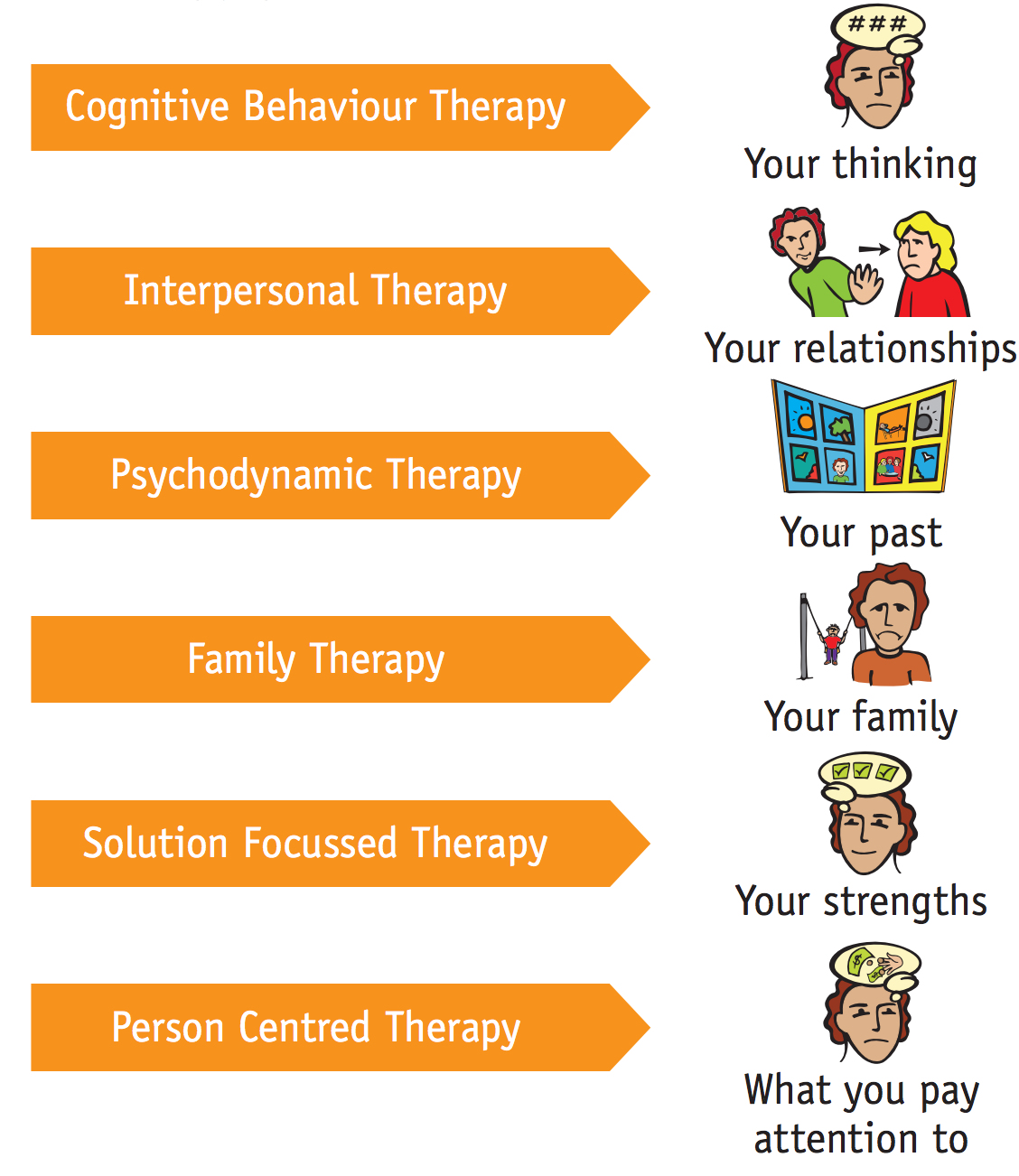virtual therapy sessions vs. Traditional Sessions: How to Choose?
A Comprehensive Guide to the Different Kinds of Counselling and Their Impact
Counseling incorporates a selection of therapeutic techniques, each made to meet distinct mental health and wellness needs. From the structured methods of Cognitive-Behavioral Treatment to the empathetic nature of Person-Centered Therapy, these modalities provide unique paths to individual development. Family members treatment and Dialectical Behavior modification offer extra structures for recovery, while team therapy cultivates area assistance. Recognizing these varied approaches can brighten their extensive influence on specific well-being. What continues to be to be discovered are the complexities of each approach.

Understanding Cognitive-Behavioral Therapy (CBT)
Although lots of restorative techniques exist, Cognitive-Behavioral Therapy (CBT) attracts attention as a result of its organized, goal-oriented nature. This form of therapy is based upon the premise that thoughts, sensations, and actions are adjoined, and by altering unfavorable thought patterns, individuals can alter their psychological actions and activities. CBT utilizes different methods, such as cognitive restructuring, which helps clients recognize and test altered beliefs. Behavioral activation encourages involvement in satisfying tasks to fight depression.
Generally, CBT is a temporary therapy, frequently enduring in between 12 to 20 sessions, making it obtainable for those looking for quick results. Its effectiveness has actually been well-documented in treating anxiety problems, clinical depression, and other mental wellness problems. The therapist's role is to direct clients with exercises and homework projects, fostering self-awareness and advertising lasting coping approaches. This sensible strategy encourages people to take control of their psychological wellness, eventually causing enhanced life contentment.
Discovering Person-Centered Therapy
Person-Centered Treatment, established by Carl Rogers, offers a contrasting technique to Cognitive-Behavioral Therapy by highlighting the customer's subjective experience. This restorative version prioritizes the person's perspective, promoting an environment of empathy, genuine positive regard, and credibility. By allowing customers to discover their feelings and thoughts without judgment, specialists assist in individual growth and self-discovery.
The core tenet of Person-Centered Treatment is the idea that individuals possess the integral capacity for self-healing and individual development. In this setup, the specialist acts as a helpful overview as opposed to a directive authority, motivating customers to take cost of their own journey. This technique is specifically effective for those grappling with concerns such as low self-confidence, stress and anxiety, or clinical depression, as it empowers them to confront and comprehend their feelings. Inevitably, Person-Centered Treatment grows a solid therapeutic partnership, fostering trust and visibility essential for purposeful adjustment.
The Duty of Family Therapy in Recovery
Household treatment functions as a vital part in the recovery process for people and their partnerships. This healing strategy concentrates on improving interaction, dealing with conflicts, and fostering deeper connections among household participants. By resolving dysfunctional characteristics, family members therapy motivates each participant to share their thoughts and feelings in a risk-free setting, promoting understanding and empathy.

The impact of family members treatment extends beyond the sessions, as enhanced partnerships can bring about boosted psychological wellness for all involved. In general, family therapy plays an important function in healing by fostering unity, durability, and mutual support among family participants, inevitably leading them towards a much healthier, a lot more satisfying life together.
Unboxing Dialectical Behavior Modification (DBT)
Building on the foundation of restorative approaches that enhance emotional well-being, Dialectical Behavior modification (DBT) supplies an organized structure for individuals dealing with intense feelings and behavior difficulties. Developed by Marsha Linehan, DBT incorporates cognitive-behavioral techniques with mindfulness practices, aiming to help clients manage frustrating feelings and improve social efficiency.
The therapy is particularly valuable for those identified with Borderline Individuality Condition but is additionally relevant to a series of other psychological health concerns. low cost therapy. DBT contains private treatment sessions and skills training teams, concentrating on 4 crucial capability: mindfulness, distress tolerance, feeling policy, and social efficiency
The Advantages of Group Coaching Sessions
While specific therapy gives important understandings, group counseling sessions offer special benefits that can considerably boost the restorative experience. One vital advantage is the feeling of area that emerges amongst participants. Individuals frequently find convenience in sharing their experiences with others dealing with similar obstacles, cultivating a helpful atmosphere that reduces sensations of seclusion.
Furthermore, team sessions urge diverse perspectives, permitting participants to gain from each various other's coping approaches and insights. This cumulative knowledge can bring about enhanced problem-solving capabilities and a wider understanding of personal concerns.
Furthermore, team therapy typically promotes responsibility, as members inspire each other to seek their goals and abide by their dedications. Lastly, the cost-effectiveness of team therapy makes it an obtainable choice for several individuals seeking support. In general, the collaborative nature of group therapy sessions can greatly improve the healing trip.
Regularly Asked Concerns
What Certifications Do Specialists Required to Exercise Counseling?
Therapists generally require a pertinent level in psychology or therapy, together with supervised clinical experience. In addition, they have to acquire suitable licensure or certification to exercise legitimately, guaranteeing adherence to expert standards and honest guidelines.
How Do I Choose the Right Kind Of Treatment for Me?
Choosing the right type of treatment includes evaluating individual needs, discovering different methods, considering specialist specialties, and looking for recommendations. Recognizing private goals and choices can significantly boost the efficiency and complete satisfaction of the healing experience.

Are Online Counseling Procedure as Effective as In-Person Ones?
The efficiency of online therapy sessions compared to in-person ones often relies on private choices and situations. Study suggests that both approaches can produce favorable results, though some might find better comfort in face-to-face communications.
For How Long Does Counseling Normally Last?

What Should I Anticipate Throughout My First Therapy Session?
During the very first therapy session, customers can anticipate an intro, conversation of their concerns, establishment of goals, and an introduction of the therapy procedure - couples counselling. This first meeting aims to develop connection and warranty convenience